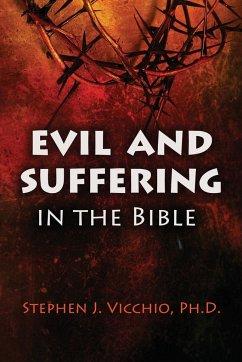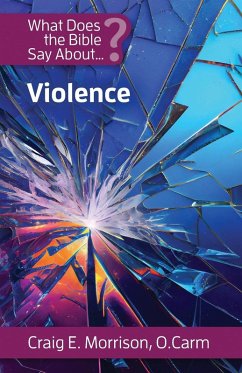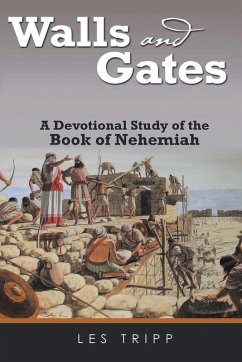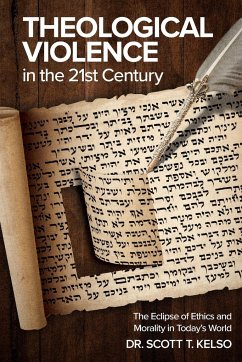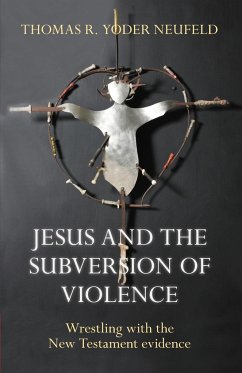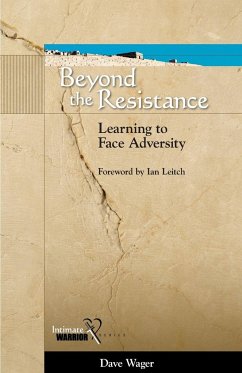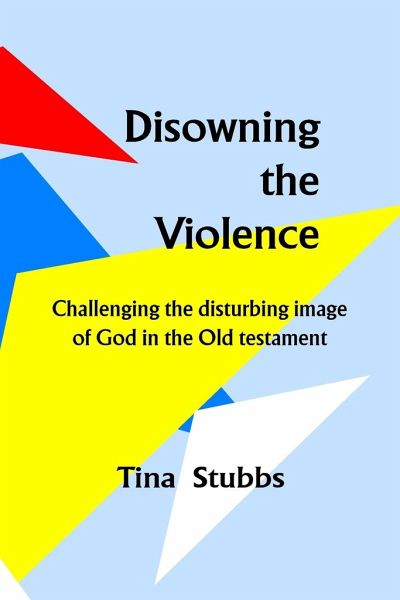
Disowning the Violence
Versandkostenfrei!
Versandfertig in 1-2 Wochen
10,99 €
inkl. MwSt.

PAYBACK Punkte
5 °P sammeln!
Disowning the Violence The bible tells us what ancient people thought about God as much as it tells us about God, himself. Many horrific acts are attributed to God for which the God we see in Jesus could never have been responsible. On numerous occasions throughout the Old Testament - in all its aspects and throughout the thousand years or more it grew to become the vast document it is now - we encounter a God who cares. His steadfast love, his patience and his faithfulness for his chosen people, the children of Israel, is clear. However, those who oppose him and his chosen people are permitte...
Disowning the Violence The bible tells us what ancient people thought about God as much as it tells us about God, himself. Many horrific acts are attributed to God for which the God we see in Jesus could never have been responsible. On numerous occasions throughout the Old Testament - in all its aspects and throughout the thousand years or more it grew to become the vast document it is now - we encounter a God who cares. His steadfast love, his patience and his faithfulness for his chosen people, the children of Israel, is clear. However, those who oppose him and his chosen people are permitted very little mercy and the Israelites are commanded with injunctions beginning, "This says the Lord" to undertake merciless slaughter, not just on the combatants but everything that has breath. God orders genocide. And the commands of violence are not limited to genocide but in all aspects of everyday life. The story of Noah concludes, not just with a rescued few people and representative species and a rainbow, but the total annihilation of the rest of the world. The message is one of an angry violent God capable of destruction. The psalmist writing in the days of exile in Babylon pronounces happiness for the Israelite who takes the little ones of the Babylonians and dashes them against the rock. (Psalm 137:9) This poses a problem for the use of the Old Testament in our world today. Those who value the New Testament and the way Jesus Christ reveals a God of love with a mission to save, heal, forgive and resurrect are often scandalised by what they find in the Old Testament. How can they retain the Old Testament, teach their children its stories and read it aloud in church followed by the words, "This is the word of the Lord"? Tina Stubbs encountered this problem when she was still in primary school. For many years, she was ready to dismiss the Old Testament completely but that meant losing all that preceded the coming of Jesus. The chosen people of the Old Testament are those who made it possible for the revelation of God in Jesus. How the Jews came to know God is told in its pages. Stubbs does not go along with the strategies employed by preachers and educators which simply leave out the gory bits. Neither is she satisfied by the explanations and excuses often made by those who advocate a literal reading of Scripture but, nevertheless, she does not advocate the dismissal of any part of the Old Testament. Stubbs asserts that God did not write the bible. Human beings (men) did. But she believes that, despite its flaws and problems, God has adopted the bible and speaks to us through its pages. It gives us the life-transforming message of Jesus. It gives us so many purple passages of inspiration for our life and faith in both the Old and New Testaments. She urges us to read it with realism and with an expectation of being guided by God. These two things are perfectly compatible. God is alive and active in our real world. Christians, she asserts, should try to see all life, including the bible, through the "lens of Jesus": "Whilst not denying the horrors of some aspects of the Old Testament, we can nevertheless find much to learn from its positive aspects and it is particularly valuable in helping us better understand many aspects of the New Testament."



